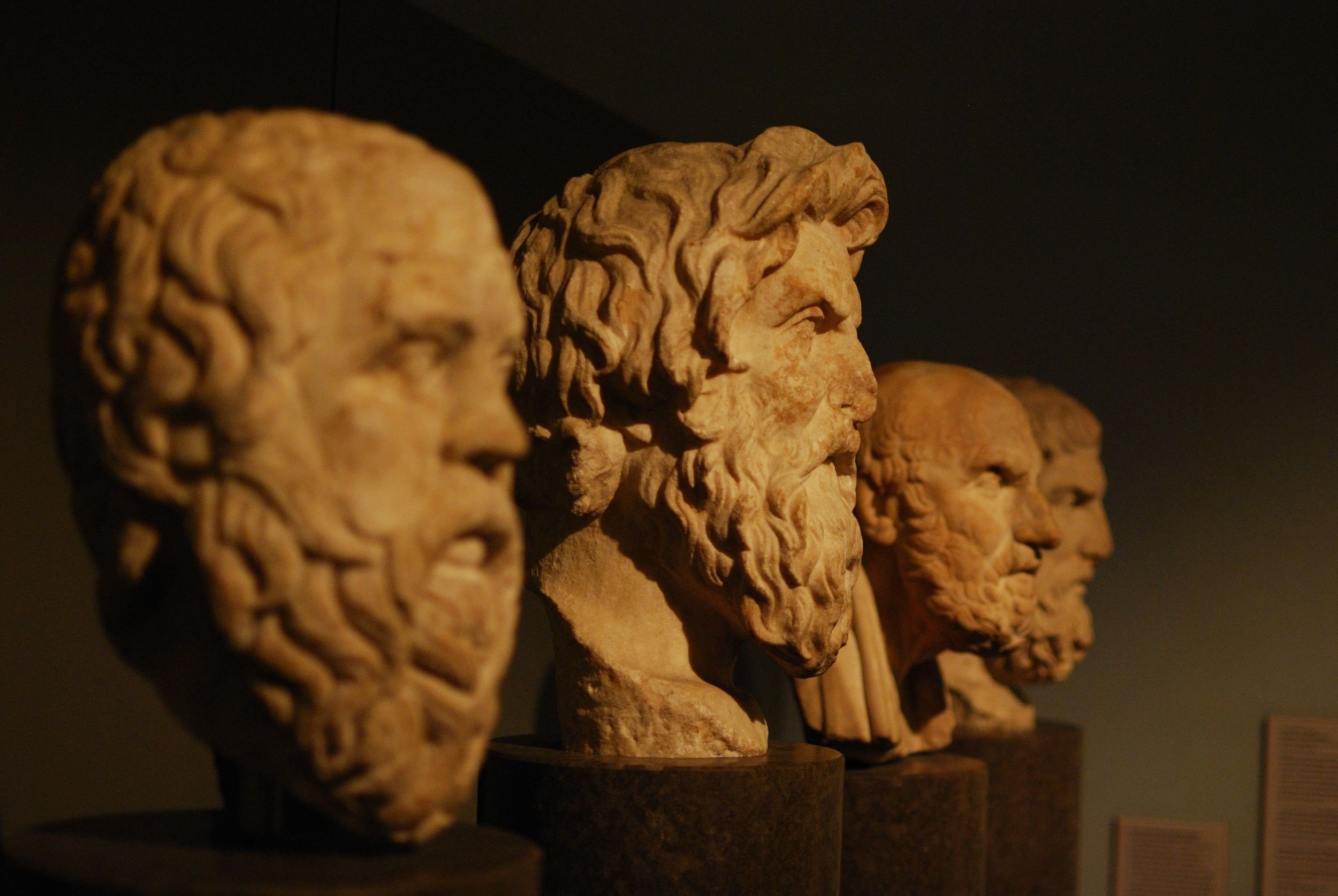What the Four Virtues of Stoicism Teach Us Today
Courage, justice, temperance and wisdom are the four virtues that underpin stoicism and can help shape our daily lives.
As we enter 2022, the world feels more challenging than ever. Simplified narratives of good versus evil dominate much of the news and social media, a gruelling pandemic enters its third year, and work-related burnout reaches alarmingly high levels.
It can feel too much.
But this is where we can look to the past for guidance. Specifically, the ancient philosophy of Stoicism. Stoicism is what author Ryan Holiday calls “a tool in the pursuit of self-mastery, perseverance and wisdom to lead a meaningful life.” At Stoicism’s heart lies action to meet life’s challenges.
By examining its four virtues of Courage, Temperance, Justice and Wisdom, we can see how they can help guide us today.
Courage
One of the great Stoics, Seneca, felt pity for anyone who didn’t face adversity in life. “You have passed through life without an opponent. No-one can ever know what you are capable of, not even you.”
Stoicism recognises that suffering is unavoidable in life. Stoics believe we should reframe this suffering and misfortune into an opportunity or learning. We can only achieve this by being courageous enough to tackle the issue.
The great Russian writer Aleksandr Solzhenitsyn was a captain in Russia’s Red Army during World War II. He spent eight years in a Siberian Gulag camp for criticising Stalin in a private letter. Solzhenitsyn’s monumental book, The Gulag Archipelago, is based on his terrible experiences, and how he eventually confronted them by asking searching, honest questions, like his own complicity in being part of the Communist regime. He won the Nobel Prize for Literature in 1970.
We all face our own challenges, from the small to the terrible. Having the courage to reframe a setback into an opportunity or learning is an essential skill in developing the resiliency to navigate life.
Temperance
Temperance is moderation. Doing nothing to excess. Too much courage can lead to recklessness, for example. We can also think of temperance as balance and discipline. Aristotle’s famous words are relevant here, “we are what we repeatedly do, therefore excellence is not an act but a habit.”
Good habits and well-structured daily routines are an important foundation for meaningful lives.
Earlier this month I had surgery on my knee for a torn meniscus and to repair significant cartilage damage under my kneecap. This was degenerative, “wear and tear” after thirty-five years of an active physical lifestyle of football and running.
As I rehabilitate, I lose my routine of a daily run, but I gain something too. I can reflect on what I will do differently. Less running on hard surfaces, more varied cross-training and more regular breaks from running, especially after tough training blocks. A little more balance. These small but significant routine changes will help set me up for a successful comeback.
Excess in any sport, discipline or aspect of life is never good. Temperance is key to succeeding.
Justice
Justice - or doing the right thing - is the virtue held in the highest regard by the Stoics. Roman emperor and the last of the “Five Good Emperors”, Marcus Aurelius said, “Justice is the source of all the other virtues.”
“Stoics see the world clearly, but also see clearly what the world can be.”
Applying that today requires combining the other three virtues. Speaking your mind and taking the right kinds of risks based on your informed assessment of things.
In my role at Dell Technologies, I’ve coached groups of new leaders. Something I emphasise is to speak up in a meeting if there is something they want to say. They are in that meeting for a reason. Their skills and competencies have already been endorsed. Their words can have positive consequences for the company and the teams they lead. Staying silent could have negative consequences.
Doing the right thing isn’t always easy, but our courage, temperance, and wisdom can guide us.
Wisdom
Wisdom is the knowing and learning, accumulated over a lifetime. But it’s also about the right knowledge; we need to be selective. We also need to be open-minded. As Epictetus said, “You cannot learn that which you think you already know.” (Epictetus was born into slavery).
Big issues are complicated. They are seldom black and white. We need to read far and wide, seek different perspectives, to understand the nuances and help get a deeper understanding of the issue.
There is an excellent series called Middle Ground, where small groups debate highly contentious social, economic and political issues. What sets this series apart is the ability of both sides to listen and try to understand the opposing view.
Listen more than you talk. Always be a student. Act wisely. This is the path to wisdom.
Shaping our lives
Courage, Justice, Temperance and Wisdom. Four virtues that underpin Stoicism we can continue to rely on to shape our lives, just as so many have done over the past two millennia.
And yet, it nearly didn’t happen. In 304 BC, a merchant called Zeno almost lost everything in a shipwreck while making an expedition to Athens. The Cynic philosopher Crates and the Megarian philosopher Stilpo introduced him to philosophy.
From this, Zeno created Stoicism.
A voyage of disaster led to the discovery of a lifetime. And we are still discovering.

